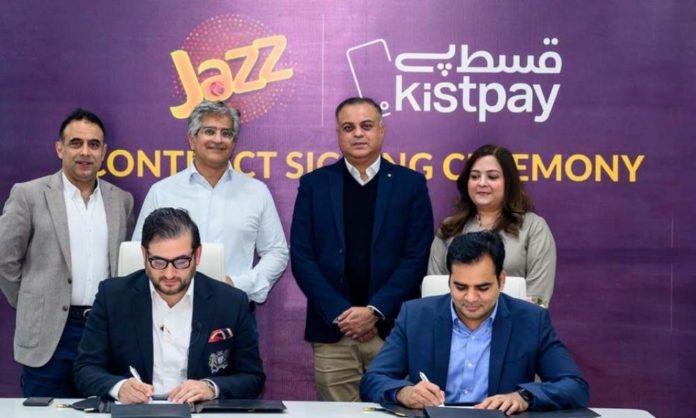By partnering with Kistpay, a Shariah-compliant finance platform, Jazz, Pakistan’s top digital operator and a member of the VEON Group, will offer its customers simple instalment plans for smartphones.
The goal of this partnership is to increase the number of middle-class and low-income persons who possess smartphones by providing simple installment-based and Shariah-compliant financing options. Customers can purchase smartphones using either the three-month plan or the six-month plan by going to the closest Jazz experience centre, starting at just PKR 2243 per month.
Asif Aziz, Jazz’s Chief Commercial Officer, remarked during the signing ceremony, “This alliance is an extremely significant step towards reaching our ‘4G for All’ ambition. Smartphone ownership is a crucial component of the digital economy, and by offering installment-based financing options for smartphone purchases, this joint endeavour will increase the purchasing power of underserved and unserved groups.
“We are happy to work with Jazz again to bring ease of access and ownership of smartphones to all our countrymen, including the youth and women,” stated Asif Jafri, CEO of Kistpay. We are optimistic that this collaboration will foster the development of the digital economy and strengthen our rural areas.
Virtually attending the signing ceremony, Julian Gorman, Head of Asia Pacific, GSMA, praised the work made by both organisations to help Pakistan overcome the pricing barrier for devices.
Jazz has undertaken a number of initiatives to increase the advantages of mobile broadband, especially among low-income segments in Pakistan. However, the cost of smartphones continues to be a major barrier to mobile ownership and the adoption of mobile internet, particularly for women and rural populations. The GSMA, the association for mobile network carriers, acknowledged the introduction of Jazz Digit 4G smart feature phones last year.
The company’s commitment to the Sustainable Development Goals (SDGs), such as SDG 5 on gender equality, SDG 9 on industry, innovation, and infrastructure, and SDG 10 on reduced inequalities, is also reflected in this relationship.





































